Squashes commonly get infested by ants, but even if you see plenty of them, they are most likely not causing any damage.
In fact, ants rarely feed on plants. The exception is fire ants, which are tiny red ants that can munch on the most tender parts of squash plants and sting people.
Black ants, on the other hand, usually only colonize squash plants if aphids are present. Aphids feed from the sap of plants and produce a sugary secretion that attracts ants.
You will first need to identify the type of ant before you decide how to deal with those on your squash plants as there are different methods for either black or red ants.
For Black Ants, the smartest option would be to target aphids directly as they are the ones that can cause the greatest damage to your plants.
- Related article: Ant Infestation in Plants
Read on to find out more about ants on your squash plants and how to deal with them!
Are Ants on Squash Plants a Problem?
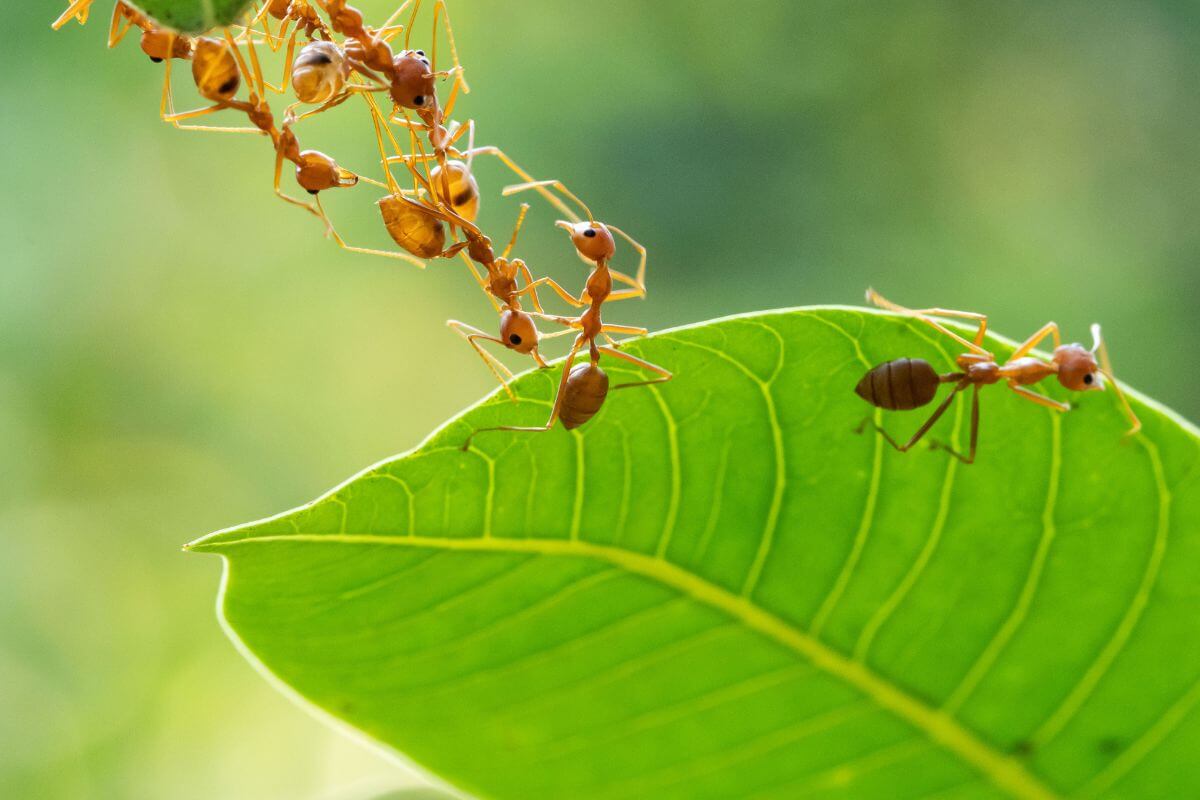
Ants can sometimes be a problem for the entire squash plants.
The most common garden ant is the small, black one, which can cause issues because of its symbiotic mutualistic relationship with aphids.
Ants are opportunistic eaters, so they take advantage of the fact that aphids suck so much sap that they can’t digest all of the sugar it contains.
Their excretions, called honeydew, are extremely sweet and nutritious, so ants have learned to farm these honeydew-producing insects and even protect them from predators.
Aphid population can easily get out of control as ants farm aphids, causing significant damage to your squash plants.
Yellowed or mottled leaves that lead to weakening of your plants are the first signs of a major aphid infestation.
The main problem though is that aphids can carry diseases, which can easily spread from plant to plant.
Another problem ants can cause is due to them eating parts of squash plants by the ones you should worry about which are fire ants.
If they aren’t many, the damage they cause is negligible, but they can be dangerous if their numbers increase too much or when the plants are very young.
At this stage, even a little munching of the leaves and stems can result in the death of the young shoots.
Many ants also sometimes feed from the pollen of squash blossom or squash flower buds. This shouldn’t be an issue in itself as they eat very tiny amounts of pollen.
The problem is that sometimes, they might hinder the work of other pollinators, for example, bees.
Ants also pollinate by moving from plant to plant, but it looks like sometimes, the damage they cause outweighs their contribution to the plant’s reproduction.
Finally, ants can cause problems with squash roots. Ants build their nests in the ground by digging galleries, which, at times, go directly through the roots of the plants, limiting their ability to absorb nutrients.
Will Ants Eat Squash Plants?
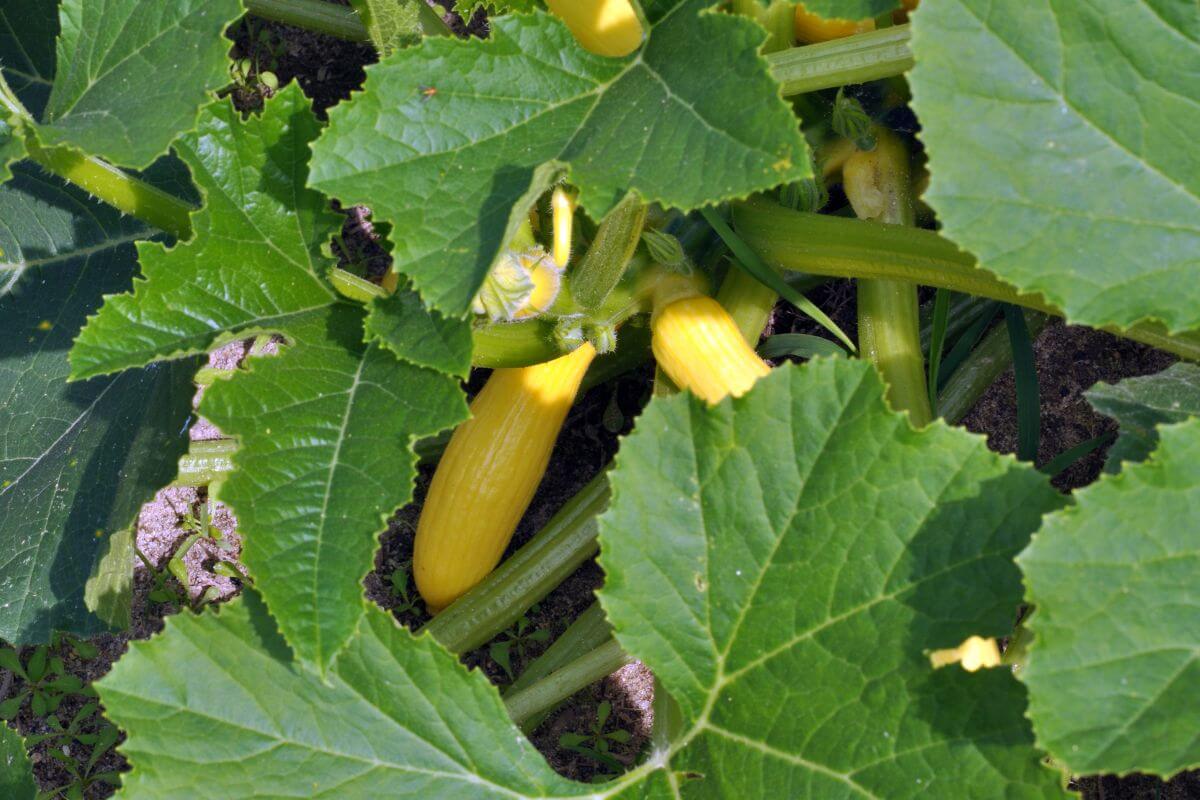
It seems that the only ant that feeds from squash plants is the red fire ant.
This species is more the exception than the rule, as normally ants will colonize your plants because they are attracted to aphids, not the plant itself.
Red ants concentrate their efforts on the most tender parts of squash plants, which can be easily munched. They sometimes attack the flowers, but mainly young shoots.
Pollen can also be a source of food for fire ants and black ants alike, but they normally don’t eat too much of it.
Squash fruits aren’t of any interest to ants, except if they are already damaged or detached from the plant. In this case, ants will swarm the easily available food and start the decomposition process.
How Can Ants Help Squash Plants?
Ants can also be beneficial for squash plants, especially black ants. These are, in fact, important insects for the balance of the garden ecosystem.
They play a vital role for many reasons but the following are the main ones:
1. Ants Decrease Pests
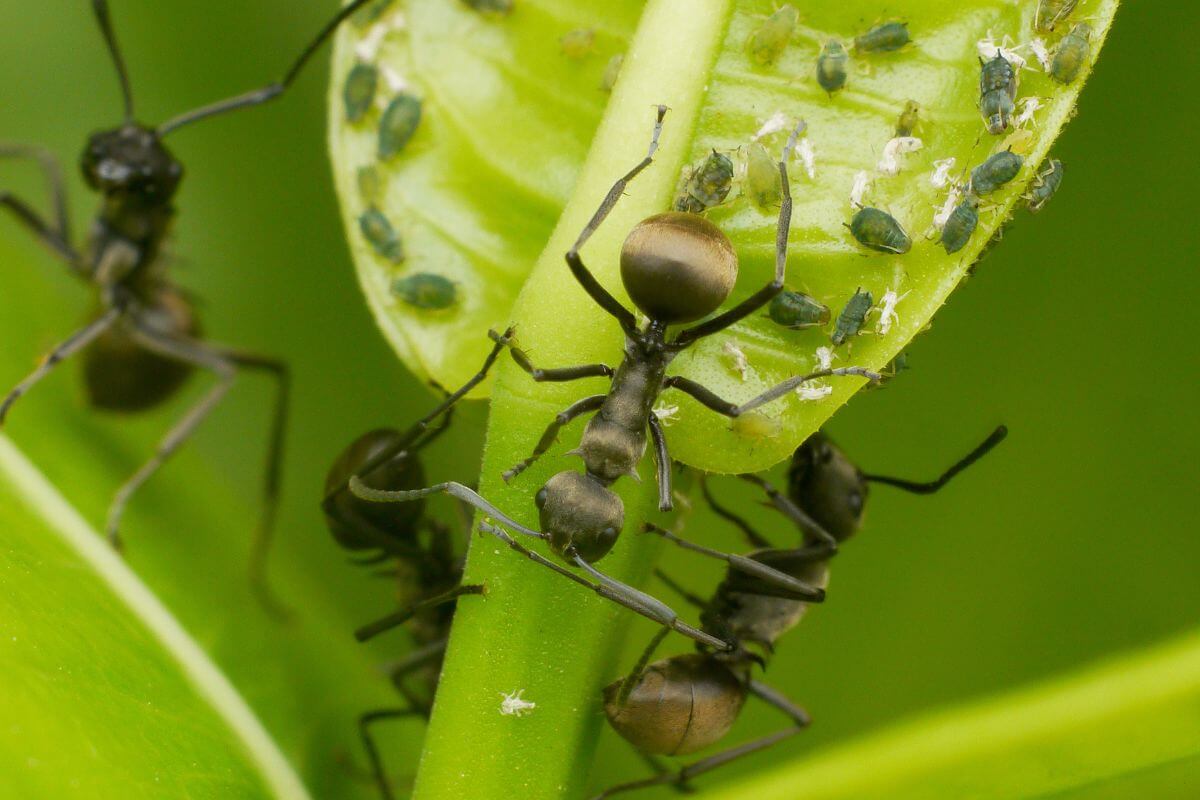
Apart from feeding on honeydew and pollen, ants also eat insect eggs and larvae. The ones they feed on are often harmful insects for your squash plants, which will benefit from smaller pest populations.
Ants can be so helpful that sometimes farmers even introduce them in the garden on purpose as a mean of biological pest control.
2. Ants Improve the Soil
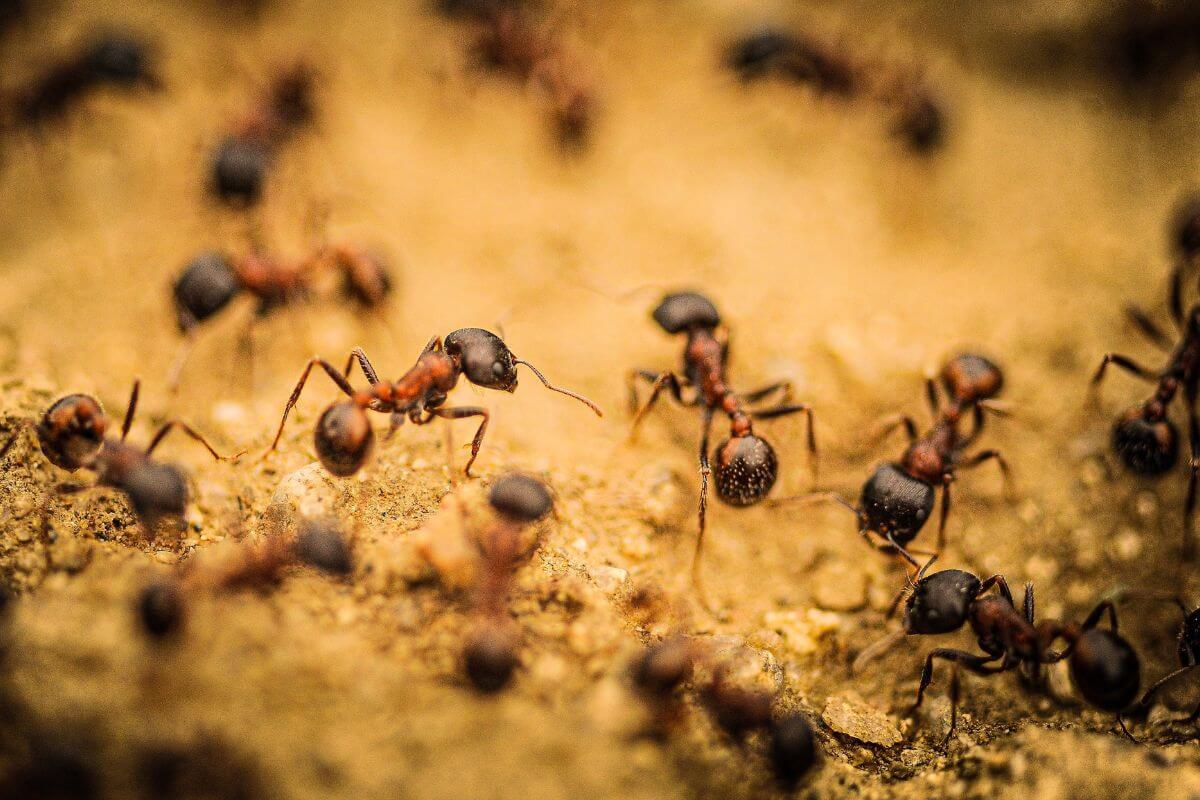
Even if the galleries ants excavate can sometimes be a problem for roots, most often they are beneficial.
The soil is healthier if it’s not too dense, and ants’ tunnels create a system of empty spaces that can help water and air to flow more efficiently throughout the soil.
The plants ultimately benefit from this as they access these resources more easily.
Ants also improve the soil by decomposing organic material. In this way, dead plant parts, dead insects, and deceased animals get broken down instead of accumulating, and nutrients get back into the soil.
3. Ants Are Pollinators
The damage ants can cause by preventing other insects from pollinating squash plants is harmful. However, there is a fine balance between helpful and harmful since ants can also help to pollinate.
Every garden is different, and you will have to evaluate your specific situation to understand whether ants are beneficial in this matter.
For example, if in your area, bees are scarce, it’s best to let ants do their part, however small it might be.
Best Ways to Keep Ants Away from Squash Plants
There are many methods you can use to get rid of ants. The advice is to avoid killing off black ants completely as they have many advantages, even if they do encourage aphids.
Your best option would be to wipe the aphids off, or at least control their population. You will see that there will be a lot fewer ants to worry about if they aren’t lured by aphids.
As for red ants, it’s understandable to not want them in your garden because their sting hurts and can last for quite a while. Therefore, we will also look at some methods that kill ants.
1. Control Aphids
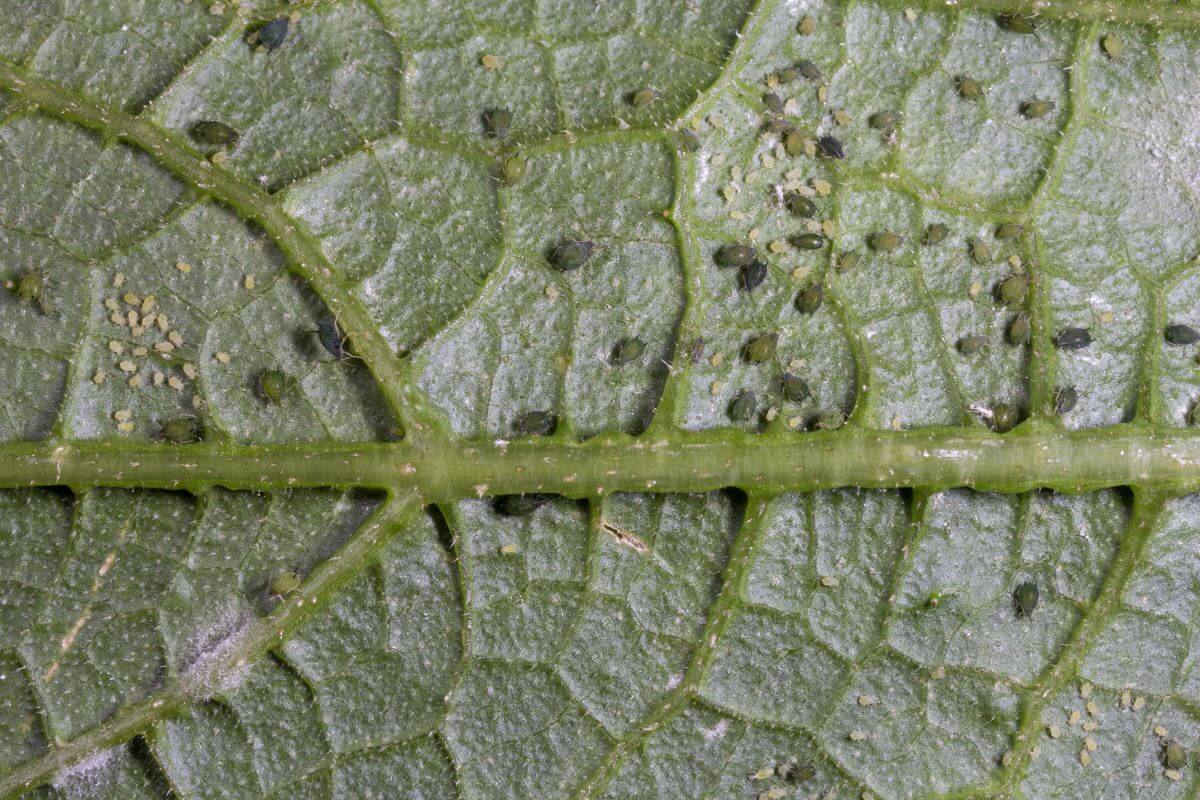
The most common aphid on squashes is the melon aphid (Aphis gossypii). This is a flying aphid, which is a bit more difficult to control than non-flying ones.
You will have to time your intervention when aphids are settled down under the squash leaves, as most natural methods only work if you spray the aphids directly with garden hose or spray bottles.
There are a variety of horticultural oils you can use, such as neem oil, and insecticidal soap is also an option.
You can also try biological controls for aphids. There are many insects that prey on aphids and that can be released or attracted to your garden to help you control them. Some of the most efficient ones are parasitic wasps and ladybugs.
2. Deter Ants
When dealing with black ants, it might be a good idea to simply repel them from your squash plants while you take care of aphids.
If you plan ahead, you can prevent them from ever entering your garden. You can accomplish this by creating a live barrier around your garden with plants they dislike.
Some examples of species you can use are rosemary, lavender, catnip, peppermint, mint, thyme, or tansy.
This will have the added benefits of increasing your garden’s biodiversity and attracting beneficial insects.
As for a short-term solution, a barrier can also be made using spices or dried herbs. You can sprinkle cayenne pepper, curry, cinnamon, garlic bits, dried mint, black pepper, and chili pepper directly around your squash plants to keep ants away.
3. Bait Ants with Sugar
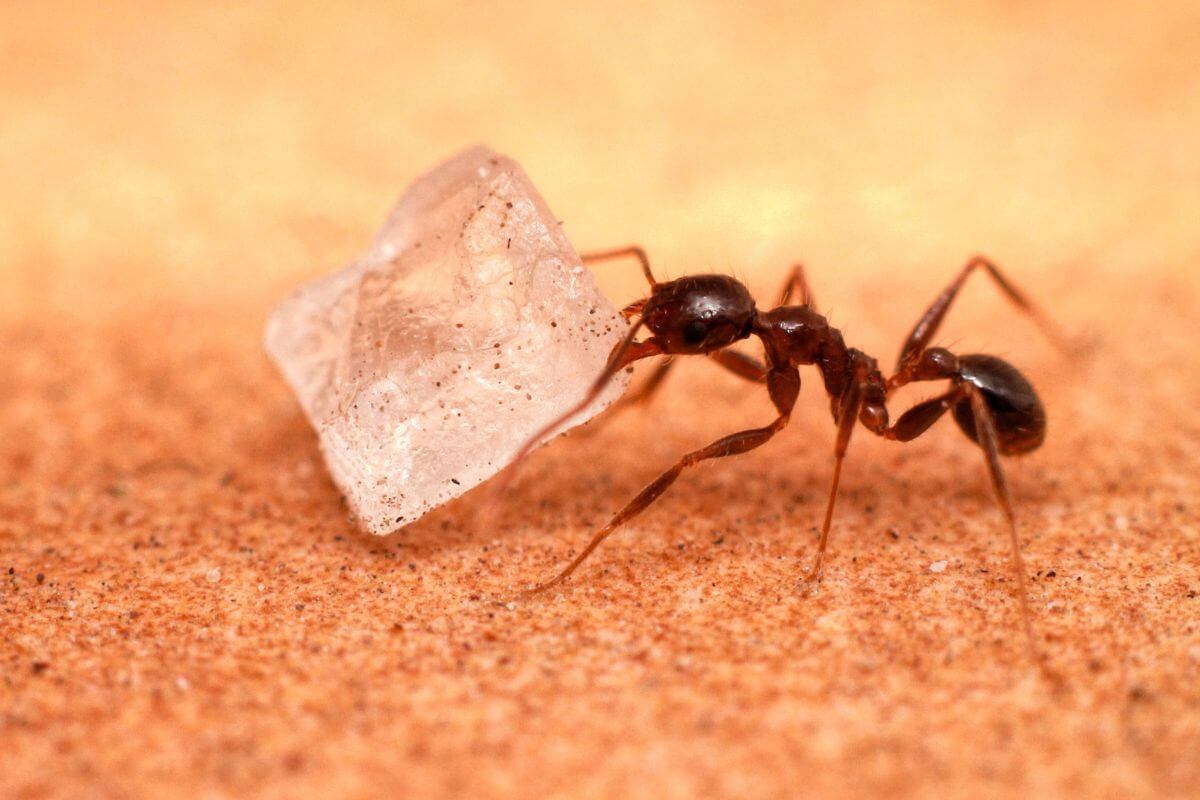
Ants are quite predictable in the fact that they will swarm anything sweet in great numbers. This behavior can be used to your advantage by mixing a poisonous substance with sugar.
The ants won’t notice the danger and they will carry the deathly mixture back to their nest, killing the whole colony. This might take a few weeks but it is more effective than spraying the ants directly.
Borax is the easiest substance to use, and also the most environmentally friendly. Be aware though, since it can be slightly toxic, especially for pets and young children.
4. Drown the Ants
To get rid of fire ants, you might want a quicker solution.
One of the easiest ways to wipe out an entire ant colony is to pour boiling water in it. Probably once won’t be enough as ants build very sturdy nests, but a few times should do the trick.
Keep in mind that this is not advised for black ants as they can be very beneficial to your plants in the absence of aphids.
Ants on Squash Plants Final Thoughts
Ants play a significant role in pollinating squash plants and controlling unwanted pests like aphids.
While they can be seen as pests themselves, their presence in a garden can make them beneficial insects to the overall health and productivity of squash plants.
As with any garden pest or helper, it is important to balance their presence and minimize any negative impact they may have on the garden.
Unfortunately, sometimes, the last resort would be insecticide solutions, pyrethrum insecticides, or biological insecticides.
Overall, learning about the unique relationship between ants and squash plants can lead to a more successful and thriving vegetable garden!
Check out these articles to learn more about ants on your squash plants:
- Why Are There Ants in My Vegetable Garden
- Do Ants Eat Cucumber Plants
- Are Ants Bad for Zucchini Plants
- Will Ants Eat Watermelon Plants
- Are Ants Bad for Sunflowers
- How to Get Rid of Ants on Corn Plants
Sources:

